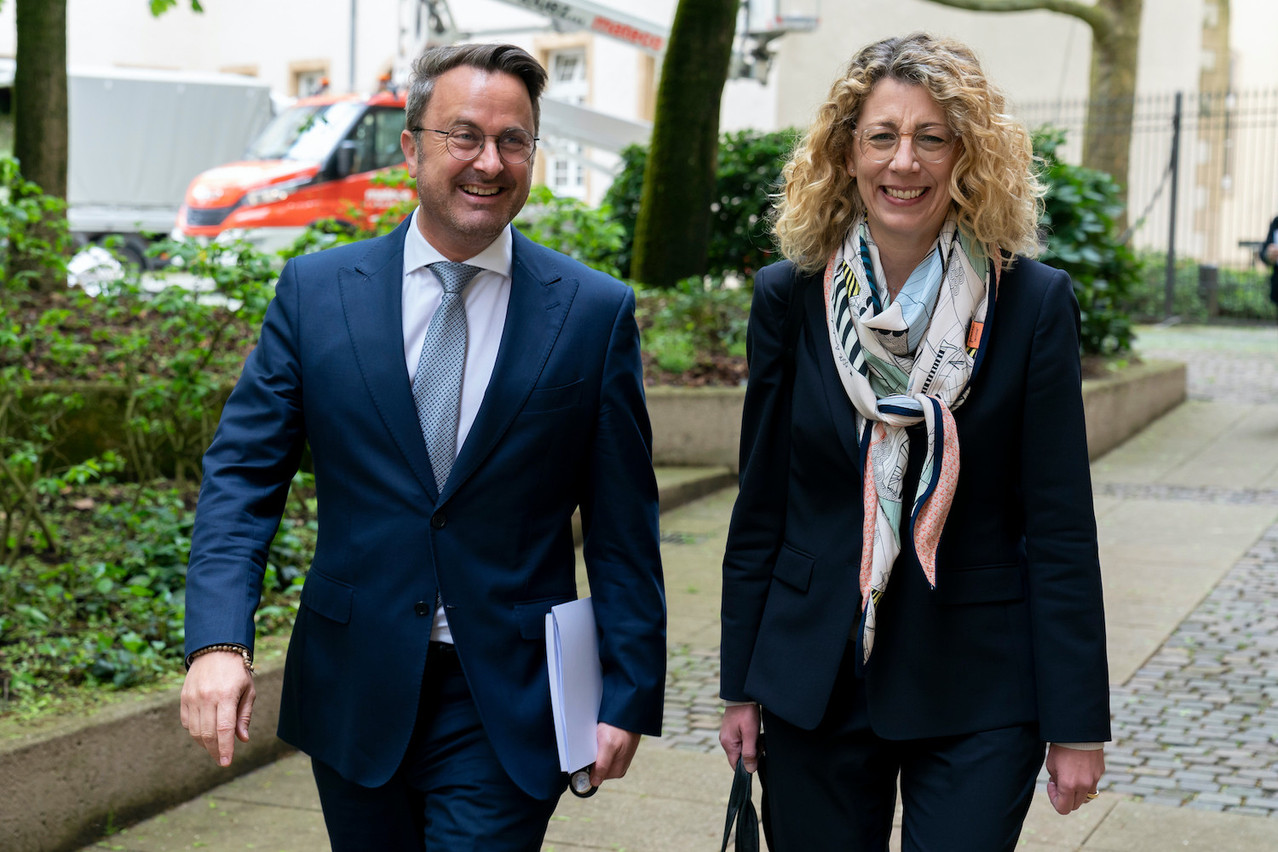The DP-LSAP-déi Gréng government in its 2018 coalition agreement had pledged to introduce a sustainability check to more systematically evaluate draft laws for their sustainable credentials.
“The understanding of sustainable development should improve,” said sustainable development minister (déi Gréng) during a press conference on Wednesday. “It’s a learning process.”
Under the so-called “Nohaltegkeetscheck,” every draft law submitted to the government council must answer a series of questions. For each of the ten sustainable development goals, authors must specify how negative impact can be mitigated or a positive impact further improved.
Should a law not apply to one of the goals, authors must explain why they think this is the case.
The ten goals in Luxembourg’s national sustainable development plan are:
- Social inclusion and education for all
- Good public health
- Sustainable production and consumption
- A diverse and future-oriented economy
- Sustainable mobility
- Stopping the destruction of nature and respecting natural resources
- Protecting the climate, adapting to climate change and ensuring sustainable energy supply
- Contribute globally to the eradication of poverty and coherent sustainable policy
- Sustainable finance
A second section of the sustainability check, including 90 more detailed questions with answers on a scale of 1 to 5, is optional. These questions cover the ten sustainable development goals in more detail, for example asking whether the law will help increase the employment rate, protect endangered species or reduce public debt.
“Important tool”
“We wanted to start with something that’s not too complicated,” said prime minister (DP), rather than opting for an overly complex procedure that will never kick off. Staff within the government’s ministries are receiving training to comply with the new rules and the check was tested on several recent draft laws.
“It’s an important tool, an important building block,” said Welfring, adding that it would also help citizens more quickly identify the impact of Luxembourg’s laws on sustainable development goals.
The form will be attached to the draft laws submitted to parliament, as is currently the case, for example, with a financial assessment.
The sustainability check will come into force in July, with a transition period until then. With the government and parliament usually breaking for business during the summer school holiday and elections scheduled for October, its application is more likely to systematically begin under the next government.
OECD assessment
The OECD in an of Luxembourg’s mechanisms and capacities to deliver on its sustainable development goals (SDGs) at home and abroad had endorsed the adoption of the “Nohaltegkeetscheck” as a mandatory tool.
The check “could prove effective for more systematically taking into account long-term impact of draft laws and regulations as well as policy proposals.”
However, the government does not plan on establishing a central advisory body to oversee the quality of the checks, as recommended by the OECD. Instead, responsibility will fall on the ministries, the government council and also parliament to make sure it is properly implemented.
The government council is a bi-weekly cabinet meeting, which approves all draft laws before they are submitted to parliament.
An inter-departmental committee, however, is available to officials requiring any support in filling out the form, Welfring said, adding that the system should be up for review after the first year to draw conclusions on how to improve the check, which should also enable policymakers to have a big picture view of the sustainability impact of their initiatives more generally.
